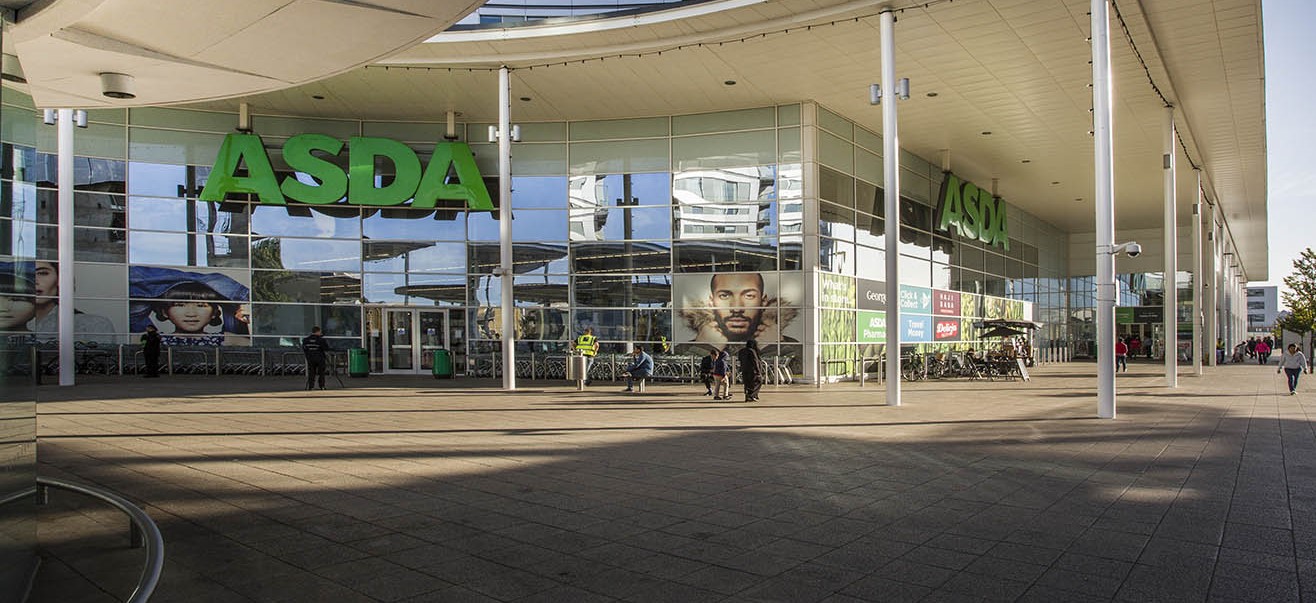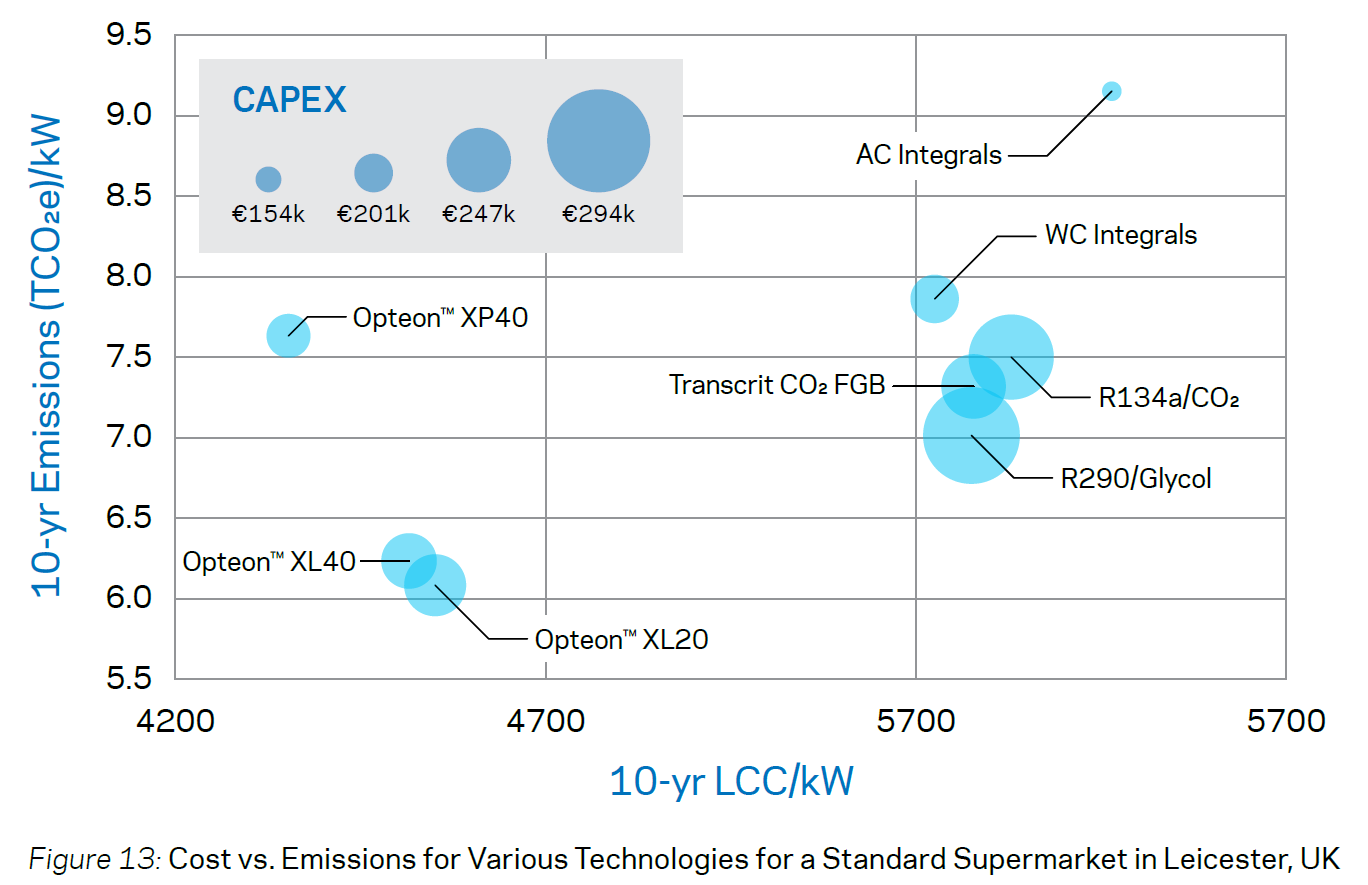Commercial Refrigeration
Sustainable
cooling solutions :
Reducing the climate impact of refrigerants by up to 90% in commercial refrigeration

As of 2020, high Global Warming Potential (GWP) refrigerants such as HFC R-404A will be banned under the EU F-Gas Regulation in new stationary refrigeration equipment. In addition, high GWP HFCs are increasingly under pressure as a result of the HFC phase-down. However, GWP is not the only criterion to take into account. Indirect emissions associated with energy use play a crucial role as they represent on average at least 70% of the total emissions of refrigeration and air-conditioning systems. It is therefore important to consider both, GWP and energy efficiency when making refrigerant choices. In addition, safety, installation and maintenance need to be part of the equation.
- Trial at ASDA Merchandising Centre of Excellence (MCE), in Leeds, UK and application on the field in a typical 2000m² ASDA supermarket in Manchester
- Application of low Global Warming Potential (GWP) HFO blend technology (lower flammability, A2L classified)
- A purpose-built Hubbard pack with Emerson compressors, with <40kW cooling capacity and charged with approx. 50kg of the HFO blend R-454A (GWP of 239)

- Improved energy performance and GWP reduction of approx. 90% compared to currently used, traditional HFC refrigerants or non-flammable HFO blend options for retrofit such as R-448A/R-449A
- According to a theoretical calculation over a 10 year time horizon, total emissions can be up to 20% lower than using a transcritical CO2 Booster system and up to 15% lower than using a propane/glycol system
- Helps meeting the challenges of the F-Gas phase-down and GWP limits and provides a safe and sustainable solution to small pack commercial refrigeration applications.

Click here to download the case study
